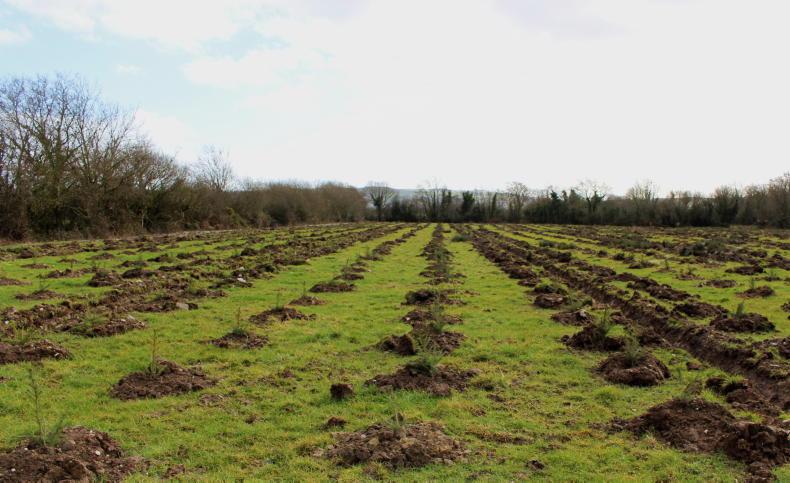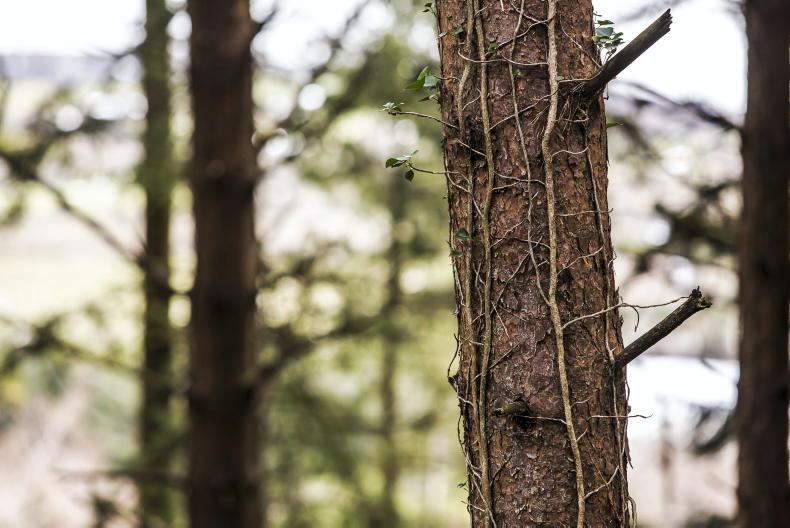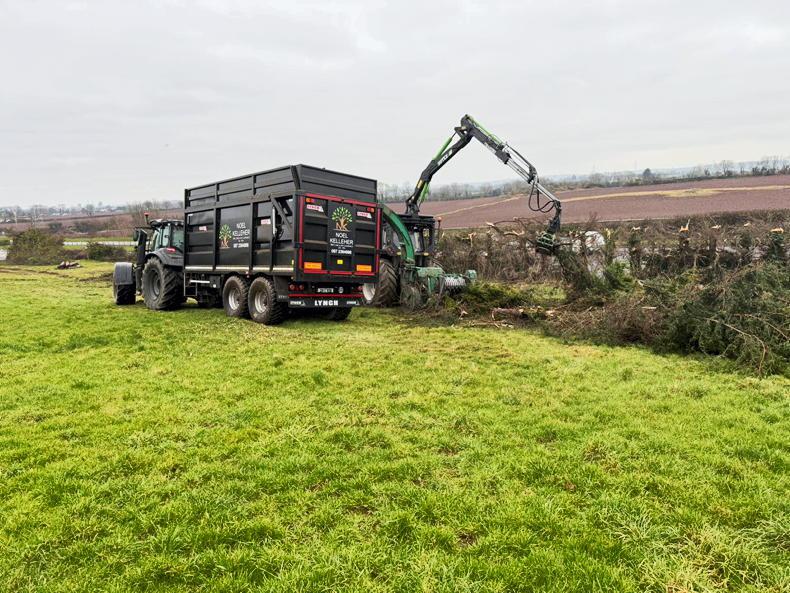The dashboard data issued by the Department of Agriculture, Food and the Marine for forestry licences issued in June showed a marked improvement on previous months.
The dashboard, which provides information on a weekly basis, covers felling and roading licences for Coillte and the private sector, while afforestation data applies to the private sector.
The Department issued 368 licences for June, representing a 25% increase on May (295), well up on February, March and April, and marginally up on January (Figure 1).
On closer scrutiny, there is positive news for private felling licences, which averaged 50 per week compared with 20 during May.
Monthly targets of 220 for private licences with ecology input (excluding Coillte felling licences) have yet to be reached. Department ecologists issued 120 in May, marginally up on April (112).
Afforestation
During the first six months this year, the Department issued afforestation licences for 2,579ha compared with 2,140ha last year, yielding a total planting programme in 2020 of 2,434ha, the poorest annual return since the 1940s. The outlook for this year is not promising as actual afforestation for the first six months was 1,208ha compared with 1,517ha last year.
“The programme can still be partially rescued but we need a major increase in planting approvals over the coming months so that we can begin ground preparation before the planting season begins in late October,” said a spokesperson for one of the forestry companies.
“It is important that the increase in felling licences is not at the expense of afforestation. The average monthly number of 40 planting licences would need to be more than doubled to achieve even a modest afforestation programme.”
Last week Minister of State Pippa Hackett said “the Department is committed to its target of 4,500 licences this year” but the spokesperson said if the afforestation programme is to be salvaged “at least 7,000 licences will be required” .
Teige Ryan of None so Hardy Nurseries believes a decent programme is achievable, citing a recent reply by Minister for Agriculture Charlie McConalogue to a Dáil question from Jackie Cahill, chair of the Oireachtas committee. “The minister outlined how 915 afforestation licences were awaiting a decision for approval on 11 May, with some of these in the system for a number of years,” Ryan said. “At an average of over 7ha per licence, this represents a potential 6,500ha programme.”
Contrasting views between foresters in the public and private sectors
A recent UCD study entitled “Irish foresters’ views of current issues in the forestry sector” shows a marked difference in job satisfaction between foresters working in the public and private sectors.
Despite the underperforming afforestation programme, the backlog in issuing forestry licences and an ash dieback scheme that needs improvement, “the job satisfaction rate among foresters in general in the industry continues to be relatively high; yet among the private sector this is not the case”, according to Emma Reilly, a final-year forestry student at UCD.
“Foresters working in the private sector tend to be more directly involved in afforestation (farm) than those in the public sector, thus the effects of [planting licence] delays are likely being felt to a greater extent in the private sector.”
The survey was carried out among Society of Irish Foresters (SIF) members, with a total of 156 or 22% of the 700 SIF members completing the survey.
“As there was no information available on those that did not respond, it is impossible to quantify any potential non-response bias,” the study maintains.
“Although the majority of respondents were optimistic and likely to encourage family members/friends into the sector, there was a substantial difference between those working in the private sector and those working in the public sector.”
For example, “out of the 16 respondents who had stated that there had been no positive change in forestry in the past decade, only one worked in the public sector”.
The public-private divide is evident throughout the study, with confidence high among foresters working in the public sector – presumably Forest Service, Coillte and Teagasc staff – and low among the private sector.
Ash dieback was a cause for serious concern among private foresters, with 85% of respondents involved in the management of ash having encountered the disease in their clients’ stands. Nearly three-quarters believed that changes need to be made to the current Reconstitution and Underplanting Scheme (RUS) due to its “inadequacy”.
The study concludes it is evident “that [private] foresters are deeply concerned for the industry’s future and their jobs”.
Emma Reilly and Prof Aine Ní Dhubháin, UCD, thanked SIF members for their contribution to the study.
Forest statistics provide a snapshot of Irish forestry but needs updating
Pippa Hackett, Minister of State with responsibility for forestry, has announced the publication of the Department’s Forest Statistics – Ireland 2021. “It includes up-to-date information on all aspects of the forest sector in Ireland including planting rates, species composition, harvesting, carbon sequestration, forest health, employment, recreation and comparisons with our European and global counterparts,” she said.
However, there are major gaps in the information provided. No overview of the timber processing industry (roundwood harvest, timber usage, exports, etc) is available for 2020 or even 2019 as the report relies on outdated data furnished in 2018.
The “approximation of the full economic value of the forest sector” estimated at €2.3bn, hasn’t been updated since 2012 while information on annual visits to Irish forests (29m) is seven years out of date.
That said, it contains important information on afforestation, carbon stocks, roading and forest size, while Minister Hackett acknowledged some of the challenges.
“The decreasing trend in the area being afforested annually is something that needs to be addressed,” she said. “The vital importance of forestry to deliver on society’s needs is well understood and the need to unlock this value into the future is clear. Therefore, the immediate priority is to address the current licensing difficulties and deliver on the objectives set out in Project Woodland.”
PEFC public consultation on certification
A draft of the PEFC Irish Forest Certification Standard (third edition) is out for public consultation. A template of the draft is available to view on www.forestry.ie/pefc-ireland. Stakeholders are encouraged to download and make comments on the draft. The period for public consultation is 60 days and closes on Sunday 29 August 2021.
“If any stakeholder has a query regarding either the standard setting or public consultation processes please contact PEFC Ireland and we will endeavour to answer queries as quickly as possible,” advises William Merivale, national secretary.
Stakeholders can contact PEFC at 021-439 9660/087-245 0241 or email pefcireland@protonmail.com. PEFC Ireland, formed in 2008, promotes sustainable forest management and the use of credibly certified timber and wood-based products.
Further information at www.pefc.ie.











SHARING OPTIONS